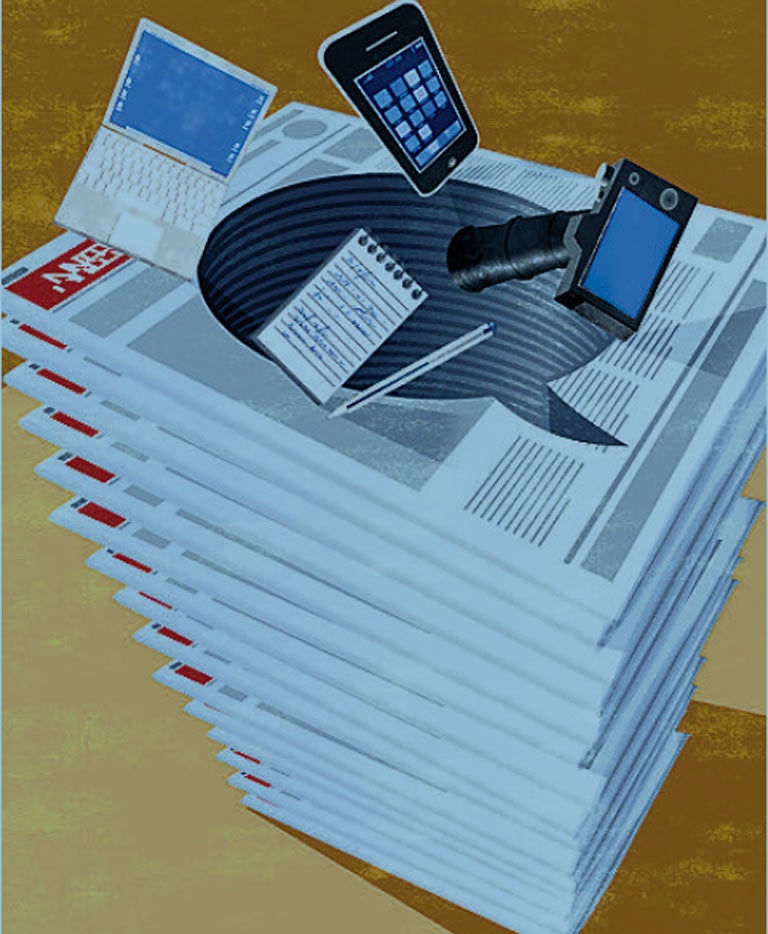Mary Ann Sieghart: Victims of press intrusion pay, while the perpetrators get away with it
Stolen secrets are junk food for the soul. Popular journalism can be made from less toxic materials


Your support helps us to tell the story
From reproductive rights to climate change to Big Tech, The Independent is on the ground when the story is developing. Whether it's investigating the financials of Elon Musk's pro-Trump PAC or producing our latest documentary, 'The A Word', which shines a light on the American women fighting for reproductive rights, we know how important it is to parse out the facts from the messaging.
At such a critical moment in US history, we need reporters on the ground. Your donation allows us to keep sending journalists to speak to both sides of the story.
The Independent is trusted by Americans across the entire political spectrum. And unlike many other quality news outlets, we choose not to lock Americans out of our reporting and analysis with paywalls. We believe quality journalism should be available to everyone, paid for by those who can afford it.
Your support makes all the difference.At a "Hacked Off" fringe meeting at the Tory party conference, the actor Hugh Grant made a great analogy with a pint of milk. If he agrees to give an interview about a forthcoming film, the paper gets an exclusive and the film gets publicity. It's a fair exchange, like selling someone a pint of milk for 50p. That doesn't give them the right to continue to demand pints of milk from you for free, or to break into your home and raid your fridge.
Yet the business model of downmarket newspapers, he argues, is exactly that: "Privacy theft for profit." And it's hard to disagree. The papers claim disingenuously that, once an actor has talked to a journalist about their working life, it's fair to write anything about their private life. It's fair to trample all over their human rights: specifically Article 8, which is supposed to guarantee that "everyone has the right to respect for his private and family life, his home and his correspondence". And yes, human rights are universal, so "everyone" means everyone.
Look at what's happened since a woman with whom Grant had a "fleeting affair" gave birth to their child. Tinglan Hong's home has been besieged by paparazzi, despite a Press Complaints Commission request that she and the baby be left in peace, and despite Grant hiring security guards for her. She was so unnerved by being chased by photographers that she had a minor crash. By the end of last week, Grant was forced to take out an anti-harassment order. Mr Justice Tugendhat agreed that the security guards couldn't protect the mother and child without a 100-yard exclusion zone around their home. This is a £1.2m house which Grant has bought for the mother of his unplanned baby. He has expressed himself a "delighted father". According to his spokesman: "Hugh could not be happier or more supportive. He and the mother have discussed everything and are on very friendly terms." Still the newspapers have let spew a deluge of bile.
He has been vilified for being seen holding hands with a German jazz singer – even though he is a single man who is not in a relationship with Ms Hong or anyone else. Amanda Platell, in the Daily Mail, wrote of the "tawdry, inexorable decline of Hugh Grant" whom she described as an "oleaginous, womanising lounge lizard". I wonder what she would have said if, instead of supporting the mother and child handsomely, he had flounced off and demanded a DNA test?
There is, of course, a not-so-hidden agenda. Grant is one of the few famous people brave enough to have spoken out about privacy invasion long before it became fashionable after the Milly Dowler revelations. The papers want their revenge. The Leveson Inquiry into the culture, practice and ethics of the press starts its formal hearings today, and the red tops and middle-market papers, which trade on salacious gossip and privacy theft, are terrified that their business model will be destroyed if Leveson recommends tougher regulation to protect privacy.
Yet that is what the inquiry must eventually do. Over at another hearing last week, members of the Culture, Media and Sport Select Committee challenged James Murdoch, chairman of News International, over how nefariously the News of the World had behaved, not just with phone hacking, but also through surveillance of everyone from Prince William to Murdoch's nemesis, the Labour MP, Tom Watson.
This tailing of famous people may also have been illegal. Unless there was a public-interest defence, the victims are entitled to bring civil actions for misuse of private information, harassment and breach of the Data Protection Act. And how likely is there to be a public-interest defence? Almost all this intrusion is opportunistic, with editors hoping that something scandalous will turn up. In the overwhelming majority of recent privacy injunction cases, the newspapers didn't even try to argue that any public interest was involved.
Murdoch did apologise for the surveillance on Thursday, but still stood by his frankly incredible claim that he had no knowledge of any reporter but Clive Goodman being involved in phone hacking. When I worked for The Times, which is part of News International, expenditure was so closely scrutinised that I remember once being asked by the managing editor why a taxi fare from Wapping to the West End was so high. Yet we are expected to believe that Murdoch, my managing editor's boss, was prepared to wave through an extraordinary £700,000 payout to Gordon Taylor – who was of no obvious interest to their rogue royal correspondent – without even asking to see counsel's opinion explaining why this was necessary? The opinion found that: "There is overwhelming evidence of the involvement of a number of senior journalists in the illegal inquiries . . . There is a powerful case that there is (or was) a culture of illegal information access."
The News of the World's phone hacking and surveillance were at the most insalubrious end of this "culture of illegal information access", over which Murdoch presided. But Grant is right that privacy theft with no public-interest defence is still the favoured practice of the downmarket papers, and not only those in News International.
It is a practice that makes people's lives hell. Not just famous people – sometimes they are victims of crime or relatives of people in the news. They can't walk outside their front door without being photographed. They can't phone a friend or relative without fear of their phone being bugged. They can't send or receive an email without fear of their computer being hacked and daren't have a private conversation in their car.
If we were talking about a criminal, you would rightly say he had it coming to him. But what crime has Hugh Grant committed – let alone Tinglan Hong or their child? Grant might have acted in the odd mediocre film, but that's only a crime against art.
The Leveson Inquiry is concerned as much with ethics as with law. I have yet to hear an ethical justification for opportunistic intrusion into people's privacy. It is plain wrong. Yet its victims are still being forced to hire security guards and take out High Court injunctions, while the perpetrators get away with it. The PCC failed to protect Grant's family; Leveson must devise an easier and cheaper way for victims to defend themselves against intrusion, and a system of fines to deter editors in the first place.
Will that ruin the business models for these papers? Not if it applies equally to all of them. After Denmark banned transfats, the fast food industry didn't die – it just used better oils, and heart disease was halved. Stolen secrets are no more than junk food for the soul. If downmarket papers were forced to offer a diet of popular, entertaining journalism made from less toxic ingredients, they could still survive and thrive. And their readers might have a better conscience.
Join our commenting forum
Join thought-provoking conversations, follow other Independent readers and see their replies
Comments